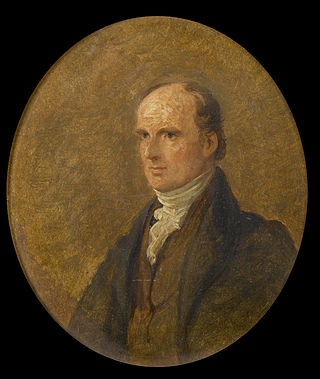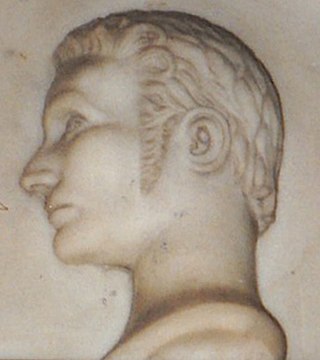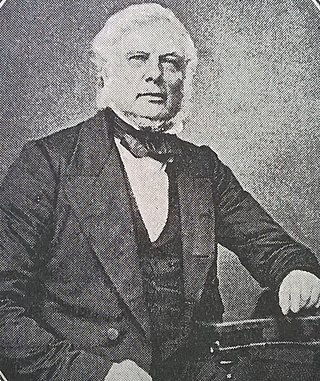Related Research Articles
The Anti-Masonic Party was the earliest third party in the United States. Formally a single-issue party, it strongly opposed Freemasonry in the United States. It was active from the late 1820s, especially in the Northeast, and later attempted to become a major party by expanding its platform to take positions on other issues. It declined quickly after 1832 as most members joined the new Whig Party; it disappeared after 1838.

The 1830s was a decade of the Gregorian calendar that began on January 1, 1830, and ended on December 31, 1839.

Edward Baines (1774–1848) was the editor and proprietor of the Leeds Mercury, politician, and the author of historical and geographic works of reference. On his death in 1848, the Leeds Intelligencer described his as "one who has earned for himself an indisputable title to be numbered among the notable men of Leeds".

Henry Warburton was an English merchant and politician, and also an enthusiastic amateur scientist.
The Morning Chronicle was a newspaper founded in 1769 in London. It was notable for having been the first steady employer of essayist William Hazlitt as a political reporter and the first steady employer of Charles Dickens as a journalist. It was the first newspaper to employ a salaried woman journalist Eliza Lynn Linton; for publishing the articles by Henry Mayhew that were collected and published in book format in 1851 as London Labour and the London Poor; and for publishing other major writers, such as John Stuart Mill.

The Kingston Whig-Standard is a newspaper in Kingston, Ontario, Canada. It is published four days a week, on Tuesday and Thursday to Saturday. It publishes a mix of community, national and international news and is currently owned by Postmedia. It has ISSN 1197-4397.
Thomas Dickens Arnold was an American politician who served two terms in the United States House of Representatives, representing Tennessee's 2nd district from 1831 to 1833, and the 1st district from 1841 to 1843. Arnold, reportedly a slave owner, was pro-Union. A staunch opponent of Andrew Jackson, he spent his first term in Congress trying to thwart the Jackson Administration's agenda, and subsequently helped establish the Whig Party in Tennessee. He was twice gerrymandered out of office by Jackson's allies in the state legislature.

Henry Hetherington was an English printer, bookseller, publisher and newspaper proprietor who campaigned for social justice, a free press, universal suffrage and religious freethought. Together with his close associates, William Lovett, John Cleave and James Watson, he was a leading member of numerous co-operative and radical groups, including the Owenite British Association for the Promotion of Co-operative Knowledge, the National Union of the Working Classes and the London Working Men's Association. As proprietor of The Poor Man's Guardian he played a major role in the "War of the Unstamped" and was imprisoned three times for refusing to pay newspaper stamp duty. He was a leader of the "moral force" wing of the Chartist movement and a supporter of pro-democracy movements in other countries. His name is included on the Reformers' Memorial in Kensal Green Cemetery.

Robert Wardell was an English-born Australian barrister and newspaper editor.
Tait's Edinburgh Magazine was a monthly periodical founded in 1832. It was an important venue for liberal political views, as well as contemporary cultural and literary developments, in early-to-mid-nineteenth century Britain.

Joseph Tinker Buckingham was an American journalist and politician in New England. He rose from humble beginnings to become an influential conservative intellectual in Boston.

Richard Bentley was a 19th-century English publisher born into a publishing family. He started a firm with his brother in 1819. Ten years later, he went into partnership with the publisher Henry Colburn. Although the business was often successful, publishing the famous "Standard Novels" series, they ended their partnership in acrimony three years later. Bentley continued alone profitably in the 1830s and early 1840s, establishing the well-known periodical Bentley's Miscellany. However, the periodical went into decline after its editor, Charles Dickens, left. Bentley's business started to falter after 1843 and he sold many of his copyrights. Only 15 years later did it begin to recover.
Andrew Bent was a printer, publisher and newspaper proprietor, active in Australia. He established the first successful newspaper in Tasmania, was the first Australian newspaperman to print a newspaper free from government control, and the first Australian printer to be imprisoned for libel.
Bradbury & Evans (est.1830) was an English printing and publishing business founded by William Bradbury (1799–1869) and Frederick Mullett Evans (1804–1870) in London.
James Wroe (1788–1844), was the only editor of the radical reformist newspaper the Manchester Observer, the journalist who named the incident known as the Peterloo massacre, and the writer of pamphlets as a result that brought about the Reform Act 1832.
The Weekly True Sun was a London, pro-Whig, Sunday newspaper that was first published on 10 February 1833 and ceased publication on 29 December 1839. John Ager published and printed the Weekly True Sun and the True Sun.
Patrick Grant was an English businessman who was an Australian politician and Police Magistrate. He was the proprietor of the Sun, the True Sun.
Robert James Tennent was an Irish Whig politician.

William Bradbury was an English printer and publisher. He is known for his work as a partner from 1830 in Bradbury and Evans, who printed the works of a number of major novelists such as Charles Dickens and William Makepeace Thackeray, as well as leading periodicals such as Punch, which they also owned.
References
- ↑ True sun (microform), National Library of Australia
- ↑ Dickens As A Journalist, The Dickens Fellowship
- ↑ Timperley, Charles Henry (1839). "libel suit against the True Sun". A Dictionary of Printers and Printing. p. 930.
- ↑ "Mr. Henry Hunt, having brought an action against the printer". The Spectator . 7 December 1833.
- ↑ PROSECUTION OF THE TRUE SUN. (Hansard, 23 July 1834)
- ↑ The Whigs and the Press: Report of the Trial of the Proprietors and Printer of the True Sun, for Recommending Non-Payment of the Assessment Taxes: Upon an Ex-officio Information Filed by His Majesty's Attorney-General. True Sun Office. 1834.
- ↑ "action brought against the True Sun". The Spectator. 8 June 1833.
- ↑ "The Court of King's Bench". The Spectator. 8 February 1834.
- ↑ Tait, William; Johnstone, Christian Isobel (1836). "D. Whittle Harvery, M.P., purchases The True Sun". Tait's Edinburgh Magazine. Vol. 3. p. 808.
- ↑ The Northern Highlands in the Nineteenth Century - No. 14